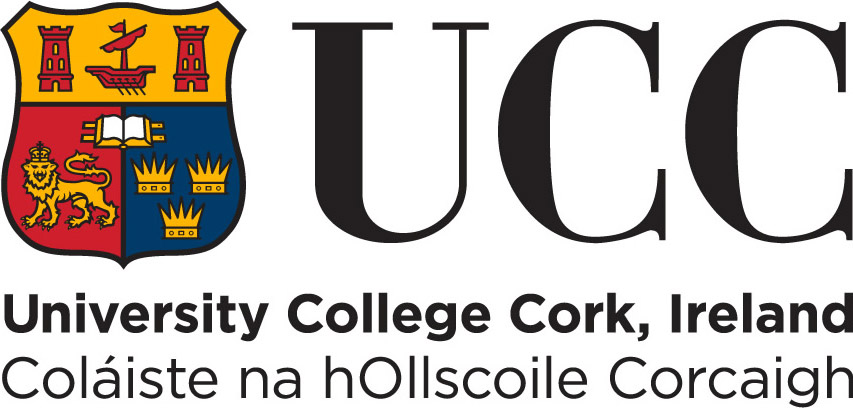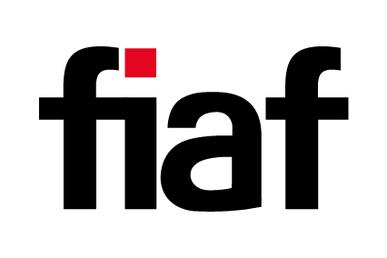BAFTA 2015: Film Craft Sessions
7 February 2015, BAFTA 195 Piccadilly, London
Jake Martin Graves and Conan Coatsworth
Schools have also traditionally relied on established filmmakers … passing on their skills, knowledge and insights to the up-and-coming generations as visiting tutors. … [T]his ensured continuity and tradition, within and beyond specific national cinemas. (Petrie and Stoneman 4)
However, many institutions cannot completely demystify the workings of the industry, given the variety of courses on offer and their short duration. As a result, in some situations additional specialised or technical training by employers for those entering employment is required (House of Lords 1: 71). Students within a closed learning environment during their film education may struggle to gain a genuine sense of the realities of film production, such as a working hierarchy or the diverse technical and even managerial skillsets required professionally. One solution to the inevitable gap between study and the ever-increasing expectations of employers is to build bridges between aspiring filmmakers and hubs of professional practitioners who can contextualise, and offer insights into, how to achieve a successful career. Effective platforms for this have been established in recent years in the UK, such as the Creative Skillset Film Academy Network and the BBC’s apprenticeship training programmes. These enable the essential connections that are possible for at least a small number of film undergraduates. Former Minister of Communications Lord Carter of Barnes commented on the growth of such initiatives, praising the “increasing and in-depth engagement between industry, commerce and the major educational institutions” (House of Lords 2: 396). Nonetheless, the House of Lords 2010 statement criticised the overall scarcity of interaction between film schools and industry professionals, links that the House considered one of the most valuable support mechanisms for filmmakers in training.
The national demand for these support mechanisms was recognised by Avid Technology, Inc., the industry’s leading postproduction company, who recently sought to nurture a relationship with film schools through its association with and sponsorship of the British Academy of Film and Television Arts (BAFTA). Avid invited a small number of film undergraduates and postgraduates to represent their schools and universities at the BAFTA Film Craft Sessions in February 2015. This is an annual event held in London the day before the televised Awards Ceremony where nominees have the opportunity to discuss their films at length with their contemporaries and other practitioners within the industry. For Avid, inviting a small number of film students to this event was not only a way to further showcase the British film industry, but also an opportunity to build connections. We were both selected to represent Falmouth University’s School of Film and Television at the Craft Sessions. This report uses the Avid-endorsed BAFTA Craft Sessions as a case study from a student perspective, and considers the extent to which such industry initiatives work to forge networking opportunities and offer guidance to film schools and third-level institutions.
While our attendance was the result of an educational collaboration between Avid, BAFTA and Falmouth University, the event did not cater for students but was a formal showcase and celebration of British and American filmmaking amongst practitioners and the nominees. As a result, our learning experience was drawn from observing the panel discussions and contextualising them within our own degree and filmmaking practice. The series of talks consisted of intimate conversations among and with the 2015 BAFTA nominated cinematographers, directors, editors and production designers, and functioned as a platform for exploring the realities of feature film production. The open panels invited the nominees of each category to talk about and compare their experiences of production practice. As the speakers were the nominees for the Awards the following day, it was an opportunity to hear them talking in greater depth, as in a series of lectures, than at the brief acceptance speeches of the Awards Ceremony.
The first session was a discussion among the visual effects (VFX) heads of department for the films shortlisted for the 2015 BAFTA for Best Visual Effects, discussing both the nominations and their previous films: Stephane Ceretti for Guardians of the Galaxy (James Gunn, 2014), X-Men: First Class (Matthew Vaughn, 2011) and Captain America: The First Avenger (Joe Johnston, 2011); Paul Corbould for Guardians of the Galaxy, Thor: The Dark World (Alan Taylor, 2013)and Skyfall (Sam Mendes, 2012); Tim Crosbie for The Wolverine (James Mangold, 2013), X-Men: Days of Future Past (Bryan Singer, 2014) and Harry Potter and the Goblet of Fire (Mike Newall, 2005); Jonathan Fawkner for Guardians of the Galaxy: The Dark Knight (Christopher Nolan, 2008); Paul Franklin for Interstellar (Nolan, 2014) and Inception (Nolan, 2010); Joe Letteri for The Hobbit: The Battle of Five Armies (Peter Jackson, 2014) and Dawn of the Planet of the Apes (Matt Reeves, 2014); and Andrew Lockley for Interstellar: The Dark Knight Rises (Nolan, 2012). As many of the BAFTA-nominated films this year used large amounts of VFX, the relationship and collaboration between VFX and production crews was a point of debate for the panel. Before the discussion was opened to the floor, the moderator asked many pertinent questions surrounding the personal drive of the artists to push the limits of what visual effects are capable of, this being one of the most evident aspects of recent cinema. Fawkner started by explaining that, while VFX is collaborative to a very great extent, every major company is competing to surprise the spectator most and make the next acclaimed film. In his words, VFX is “a creative arms race as nobody wants to make the same movie as last year”. This was a point that resonated throughout the panel as, while blockbuster franchises can be criticised for being derivative, the discussion drew from this year’s nominated films to emphasise the passion and detail that has been put into each blockbuster’s VFX. The discussion also highlighted a rise in contemporary film employment routes and opportunities, especially in postproduction. Each guest of this panel advocated the great creativity and innovation necessary in producing their “impossible” sequences and worlds.
Crosby described his duties on X Men: Days of Future Past where he was responsible for creating the superhero Quicksilver (Evan Peters) slow-motion sequence, which took seven months to achieve. After filming live, the entire set was rebuilt digitally in great detail, where the VFX artists created over 250 digital props to fly around the room as Quicksilver ran through the kitchen at 30,000 frames per second. This showed the audience that, while current films can be dominated by visual effects, the levels of detail achieved by VFX houses in the past year have been monumental accomplishments. Nevertheless, the panel was constructed to celebrate the achievements in VFX over the past twelve months, so there was no criticism of how visual effects can overshadow other aspects of a feature. The panel stressed unanimously that VFX exists purely to enhance the film; in the words of Fawkner, “it’s just another tool in the director’s toolkit”. One aspect that the panel revealed was that, despite the competition over the Awards Ceremony, the VFX industry is collaborative at heart, as practitioners work together to develop their art. This was evident as, while these nominees were pitted against each other for the VFX award, most had collaborated on the same nominated films to some extent. Throughout the discussion each of the delegates encouraged cooperation between practitioners to realise a film, whether it be a feature or a short.
The second session we attended was a panel of the nominees for the BAFTA for Best Editing. As the discussion was endorsed by Avid, this was the panel that held the most relevant to our reasons for attending as it was building connections between aspiring filmmakers and BAFTA nominees by inviting students to the event. This session revealed how professional filmmaking mirrored the process of creating short films in terms of collaboration among crewmembers. The speakers included Valerio Bonelli (Philomena [Stephen Frears, 2013]), Tom Cross (Whiplash [Damien Chazelle, 2014]), William Goldenberg (The Imitation Game [Morten Tyldum, 2014] and Zero Dark Thirty [Kathryn Bigelow, 2012]), and Barney Pilling (The Grand Budapest Hotel [Wes Anderson, 2014] and One Day [Lone Scherfig, 2011]). One of the major threads of the discussion was how editors work with the input from the broader film production team, aside from the director’s. The conversation, surprisingly, focused extensively on the relationship between editor and screenwriter, a link that is not often explored. Bondelli explained that, while editors must be conscious of the script, they should be aware that “the film on the paper isn’t the one in the can”. He stated that, while the entire crew tries their best to remain truthful to the script, the presence of the writer in the room in the course of important changes means that the characters and the story do not get lost from sight. Cross, winner of the BAFTA for Best Editing, used Whiplash as a personal example of this. As director Damien Chazelle was also the screenwriter, Cross collaborated with him acting in this role to ensure the essence of the characters stayed true throughout the film, even if this sometimes meant he had to request that whole scripted and filmed sequences be cut; for instance, scenes portraying the immovable Fletcher (J.K. Simmons) that conveyed kindness.
Separate to the editor’s panel, another highlight of the Craft Sessions was an intimate interview with Robert Yeoman, nominated cinematographer of The Grand Budapest Hotel, which began by exploring his collaboration with Wes Anderson before revealing his ambitions as a camera enthusiast while in film school at Duke University, North Carolina. For us representing Falmouth University at the session, the interview was truly engaging as he discussed both the study of cinema and the practical craft of making it as a graduate. Film degrees are often criticised for being too focused on theory over practice, but it was valuable hearing Yeoman championing the study of film. Moving on from his Wes Anderson filmography, a student asked Yeoman about his sources of inspiration. He shared that his fascination for filmmaking began when he first saw A Clockwork Orange (Stanley Kubrick, 1971) at the cinema:
I remember being so amazed and thought, I just want to get involved in this! Film school was a real experience, I found myself fascinated by imagery … I picked up a camera and had an instant affinity. I feel like it was the Clockwork Orange screening that really changed my life.
Yeoman described how certain films can captivate somebody and inspire them to a career in cinema, a drive, he believed, that could be equally stirred by seasoned practitioners sharing their experiences, much like the nominees were doing that day.
The information and insights shared by the nominees at the event were indeed encouraging and inspiring, not only leaving us with a deeper understanding of the film industry, but also fuelling our ambitions for after our film education. We gained much both from the delegates’ celebration of their BAFTA-nominated features and from their personal accounts and stories, as the discussions we witnessed were the sum of decades of professional experience. We came away feeling that there is a lack of, and need for, more networking and informal events in general, such as this insightful sessions, to help prepare film students for what employers will require from them. Our experience at the Craft Sessions, indeed, confirmed how valuable it is for students to be exposed to the opportunity of meeting practitioners while attending film school at university. A film education can teach invaluable skills and knowledge, both critical and technical, that can prepare students for an industry career; however, if the learning environment is not open to external, professional influences, then the students might not develop the “insider’s” understanding that would much help them to become filmmakers. This is why more opportunities for connections between film education and industry practitioners are essential. Furthermore, given the constant changes in the operations of the film industry, as well as in the expectations of both employers and graduates, such dialogue between makers and educators is increasingly important in order to ensure that film schools remain current with industry practices.
References
1. Argo. Dir. Ben Affleck. Warner Bros. Pictures, 2012. Film.
2. Captain America: The First Avenger. Dir. Joe Johnston. Paramount Pictures, 2011. Film.
3. A Clockwork Orange. Dir. Stanley Kubrick. Columbia, 1971. Film.
4. The Dark Knight. Dir. Christopher Nolan. Warner Bros. Pictures, 2008. Film.
5. The Dark Knight Rises. Dir. Christopher Nolan. Warner Bros. Pictures, 2012. Film.
6. Dawn of the Planet of the Apes. Dir. Matt Reeves. 20th Century Fox, 2014. Film.
7. The Grand Budapest Hotel. Dir. Wes Anderson. Fox Searchlight Pictures, 2014. Film.
8. Guardians of the Galaxy. Dir. James Gunn. Walt Disney Studios Motion Pictures, 2014. Film.
9. Harbord, Janet. The Evolution of Film: Rethinking Film Studies. Cambridge: Polity, 2007. Print.
10. Harry Potter and the Goblet of Fire. Dir. Mike Newall. Warner Bros. Pictures, 2005. Film.
11. The Hobbit: The Battle of Five Armies. Dir. Peter Jackson. Warner Bros. Pictures, 2014. Film.
12. House of Lords Select Committee on Communications. The British Film and Television Industries: Decline or Opportunity? 2 vols. London: The Authority of the House of Lords, 2010. Print.
13. The Imitation Game. Dir. Morten Tyldum. Studio Canal, 2014. Film.
14. Inception. Dir. Christopher Nolan. Warner Bros. Pictures, 2010. Film.
15. Interstellar. Dir. Christopher Nolan. Paramount Pictures, 2014. Film.
16. Maclusky, Julie. Is There Life After Film School? In Depth Advice from Industry Insiders. London: Continuum, 2003. Print.
17. One Day. Dir. Lone Scherfig. Focus Features, 2011. Film.
18. Petrie, Duncan, and Rod Stoneman. Educating Filmmakers: Past, Present and Future. Chicago: U of Chicago P, 2014. Print.
19. Philomena. Dir. Stephern Frears. Pathé, 2013. Film.
20. Skyfall. Dir. Sam Mendes. Metro-Goldwyn-Mayer, 2012. Film.
21. Thor: The Dark World. Dir. Alan Taylor. Walt Disney Studios Motion Pictures, 2013. Film.
22. Whiplash. Dir. Damien Chazelle. Sony Picture Classics, 2014. Film.
23. The Wolverine. Dir. James Mangold. 20th Century Fox, 2013. Film.
24. X-Men: Days of Future Past. Dir. Bryan Singer. 20th Century Fox, 2014. Film.
25. X-Men: First Class. Dir. Mathew Vaughn. 20th Century Fox, 2011. Film.
26. Zero Dark Thirty. Dir. Kathryn Bigelow. Universal Pictures, 2012. Film.
Suggested Citation
Graves, J. M. and Coatsworth, C. (2015) BAFTA 2015: Film Craft Sessions, 195 Piccadilly, London, 7 February 2015. Alphaville: Journal of Film and Screen Media, 9, pp.138–143. https://doi.org/10.33178/alpha.9.12.
Jake Martin Graves is a final-year student of the BA (Hons) Film at Falmouth University, specialising in film editing. His research interests include documentaries and cultural studies. He has previously published in Digital Filmmaker.
Conan Coatsworth is a first-year student of the BA (Hons) Film at Falmouth University. He has a background in theatre and has directed two plays written by Mark Brown. He has also directed a number of short films.









